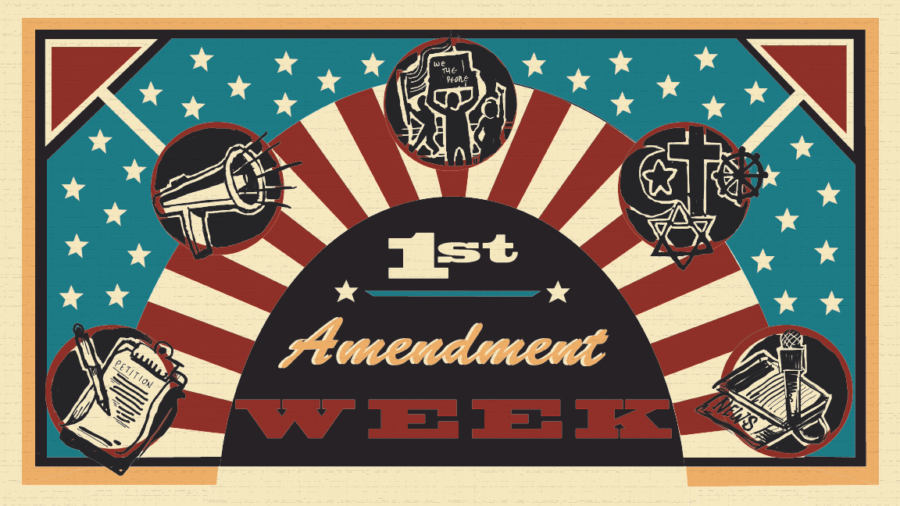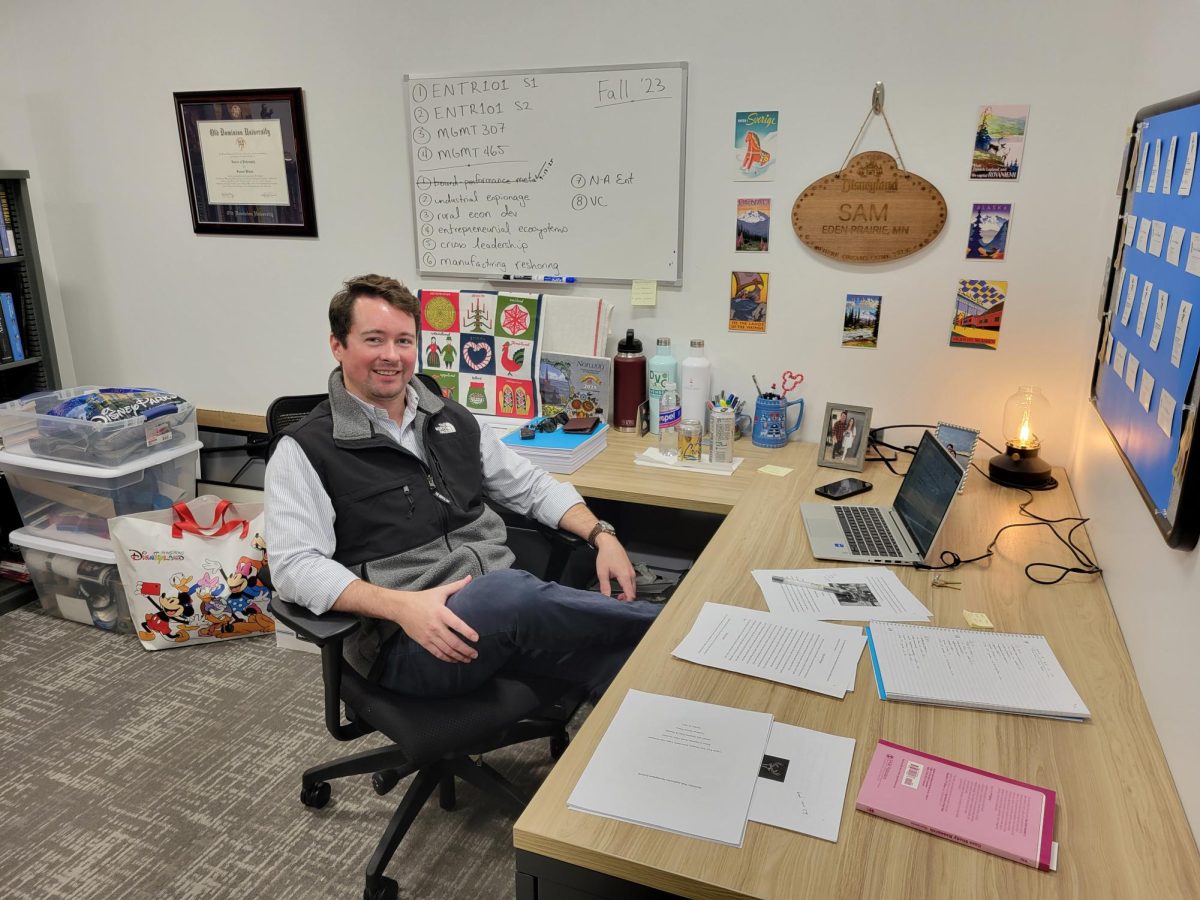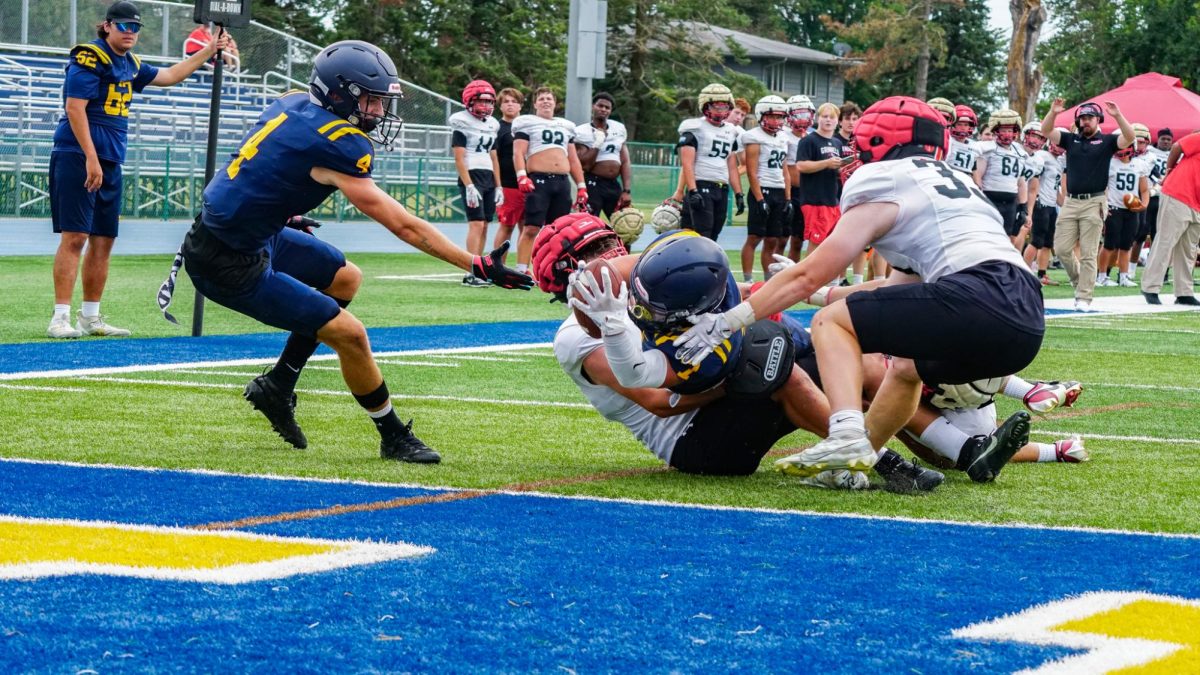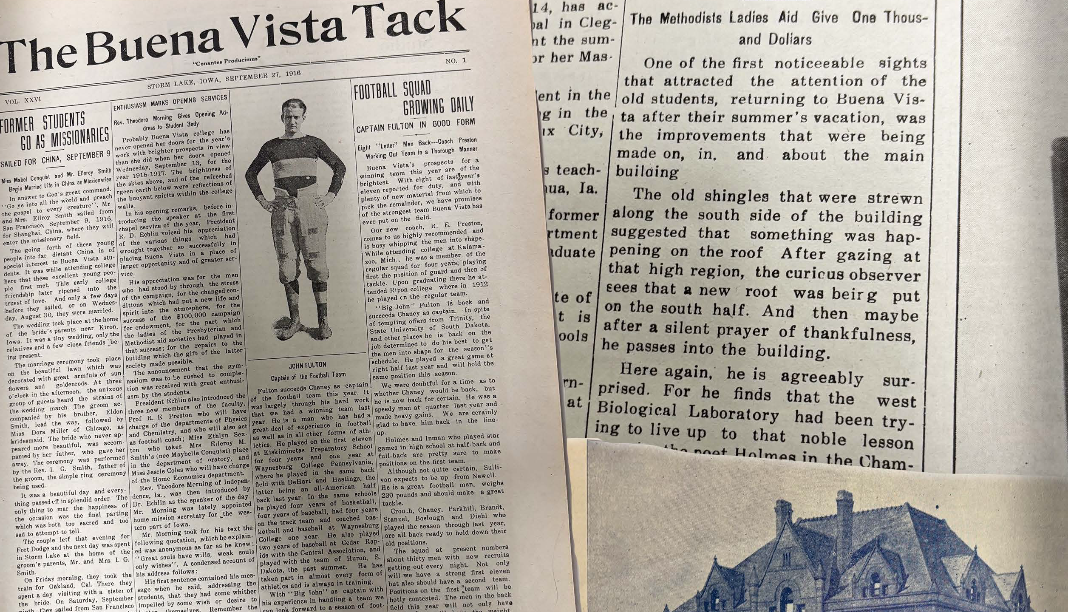Students and First Amendment Week: The Right to Be Loud
April 30, 2021
My heart thudded as I opened Facebook to see who had shared The Tack’s post. It was a link to my article on the school’s lack of call to action within the Black Lives Matter movement. It felt like I had almost written a diss track about the failure to be inclusive. And shockingly, I found alumni resharing my post with clapping emojis and hearts. It was, in my 21 years thus far, the most I felt I had exercised my right to my freedom of speech.
There is a special sort of duality that strikes against the sentiments of the First Amendment when one is a journalism student, though. In the classroom, we are taught to exercise our rights, and yet on our campus itself, we could be subject to encounter the hierarchy of the institution. There are two ways in which the freedom of speech and press can be used on a college campus: in can be practiced or it can be silenced.
In my own experience, I have been lucky to attend a college campus that does not bat an eye when I’ve published a call to action. In September 2020, I was annoyed that Buena Vista University had failed to acknowledge that there had been summer-long whistleblowing on the issue of race.
I decided to take my concerns to the publishing of one of my first articles as opinion editor, and in the process was as anxious as possible. What if the school president read it and decided that this liberal writer was too controversial and should be kicked out of school? Andrea Frantz, Professor of Digital Media here at BVU, was kind enough to talk me down. “As long as you’ve raised valid concerns and are not openly attempting to place character damage on the university, you have nothing to worry about,” she explained. At the time I thought, ‘Okay, Andrea, so basically you’re just saying that if I’m going down, then you approved this and you’re going down with me.’ However, I have since learned that speaking up on a critique-level to inform and educate is a basic American right.
In other instances, schools are not as open to critiques and fact-induced opinions. Two hours from BV, Iowa State University condemned political commentary written in chalk. The policy came after discriminatory comments were written in chalk against numerous minorities on campus. It was a policy that created a New York Times piece on the issue, seeing that it was a bite taken out of student’s right to freedom of speech.
Sigal R. Ben-Porath wrote, “Students should be encouraged to not rely solely or mainly on identity groups for political expression; rather they should be invited to learn to extend their sense of themselves as political actors beyond their identity groups.” This week is First Amendment Week, a week to reinforce the importance of free speech in schools and on college campuses everywhere. As an American citizen, it should be duly noted that squeezed into the most powerful 45 words in our Constitution is the First Amendment. It has become increasingly clear within the last four years and more intensely within the last year that we as a country are unwilling to experience any sort of road block that silences us. Freedom of speech is powerful, it is a right, regardless if you are a student or not.








